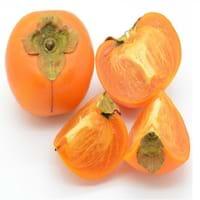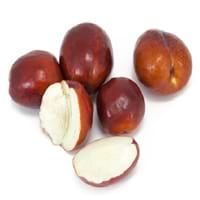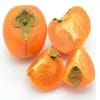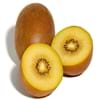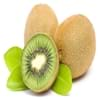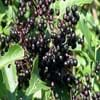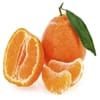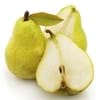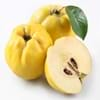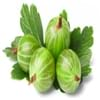Health Benefits
Cancer prevention, Heart care, Heat stroke treatment, Improves eye vision, Weight loss properties
Cancer prevention, Diarrhea treatment, Improves muscular strength, Liver health, Maintains hormonal balance, Reduces nervous tension, Reduces blood circulation problems, Reduces stress, Regulation of heart rate, Treatment of hysteria
General Benefits
Anti-inflammatory properties, Boosts immune system, Cures cough, Digestive aid, Fights against infections, Improves blood circulation
Anti oxidant properties, Digestive aid, Flu treatment, Helps in weight loss, Strengthens bones, Treatment of common cold
Skin Benefits
Anti-aging benefits, Brightens and lightens complexion, Reduces wrinkles
Heals sunburn, Hydrates skin, Reduces wrinkles, Skin rejuvenation, Skin revitalization
Hair Benefits
Promotes longer and healthier hair, Protects hair
Promotes longer and healthier hair, Protects hair
Allergy Symptoms
Abdominal pains, Anaphylaxis, Inflammation
Abdominal pains, Breathing difficulty, Diarrhea, Hives, Itching in eyes, Itching of nose, Nasal congestion, Redness of eyes, Runny nose, Sneezing, Wheezing
Side Effects
Diarrhoea, Might affect blood pressure level
Decrease in blood sugar levels, Intense headache
Lactating Women
No
Not Available
Best Time to Eat
Along with meal, As a snack in the late afternoon, Don't consume at night and before bed, Morning time (before lunch)
As a snack in the late afternoon, Don't consume at night and before bed, Morning time (before lunch), Strictly avoid empty stomach
Vitamin B9 (Folic acid)
Not Available
Vitamin C (Ascorbic Acid)
Vitamin E (Tocopherole)
Not Available
Vitamin K (Phyllochinone)
Not Available
Lutein+Zeaxanthin
Not Available
Phytosterol
Not Available
Calories in Fresh Fruit with Peel
Calories in Fresh Fruit without Peel
Not Available
Not Available
Calories in Frozen Form
Not Available
Not Available
Calories in Canned Form
Not Available
Not Available
Calories in Juice
Not Available
Calories in Jam
Not Available
Calories in Pie
Not Available
Type
Berry, Tree fruit
Tree fruit
Season
Autumn, Winter
Autumn, Summer
Varieties
Fuyu, Jiro, Gosho, Suruga, Hiratanenashi, Hachiya, Aizumishirazu, Yotsumizo, Yokono, Costata, Ormond and Tamopan
Honey Jar, Sugar Cane, Li, Shanxi Li, Sherwood, Chico, Silverhill, Tigertooth, Winter Delight and Lang
Color
Orange, Red, Yellow
Green, Red, Yellow
Inside Color
Orange
White
Origin
Burma, China, India, Japan
Syria
Soil Type
Sandy loam, Well-drained
Sandy, Well-drained
Climatic Conditions
Can tolerate wide range of climates
Warm to hot climate
Facts about
- Unripe persimmons contain lots of tannin which is used to brew sake & to preserve wood in Japan.
- A small non-edible fruit of persimmon tree is crushed with water, the solution is painted on paper & used to repel mosquitoes.
- Pigment extracted from Indian jujube is used for silk dyeing in Burma.
- In Korea, jujube wood is used to make wind instrument taepyeongso.
- Fresh jujube is known as Chinese apple & dried form is called as Chinese date.
Cocktails
Not Available
Yes
Other Countries
Azerbaijan, Brazil, Israel, Italy, Japan, Pakistan
Bangladesh, India, Iran, Korea, Lebanon, Pakistan
Top Importer
United States of America
United States of America
Botanical Name
Diospyros kaki
Ziziphus zizyphus
Synonym
Not Available
Ziziphus jujuba or Ziziphus mauritania or Zizyphus jujuba
Subkingdom
Tracheobionta
Tracheobionta
Division
Magnoliophyta
Magnoliophyta
Class
Magnoliopsida
Magnoliopsida
Subclass
Dillenhidae
Rosidae
Family
Ebenaceae
Rhamnaceae
Species
D. kaki
Z. zizyphus
Generic Group
Not Available
Not Available
Difference Between Japanese Persimmon and Jujube
We might think that Japanese Persimmon and Jujube are similar with respect to nutritional value and health benefits. But the nutrient content of both fruits is different. Japanese Persimmon and Jujube Facts such as their taste, shape, color, and size are also distinct. The difference between Japanese Persimmon and Jujube is explained here.
The amount of calories in 100 gm of fresh Japanese Persimmon and Jujube with peel is 70.00 kcal and 79.00 kcal and the amount of calories without peel is Not Available and Not Available respectively. Thus, Japanese Persimmon and Jujube belong to and category.These fruits might or might not differ with respect to their scientific classification. The order of Japanese Persimmon and Jujube is Ericales and Rosales respectively. Japanese Persimmon belongs to Ebenaceae family and Jujube belongs to Rhamnaceae family. Japanese Persimmon belongs to Diospyros genus of D. kaki species and Jujube belongs to Ziziphus genus of Z. zizyphus species. Beings plants, both fruits belong to Plantae Kingdom.
